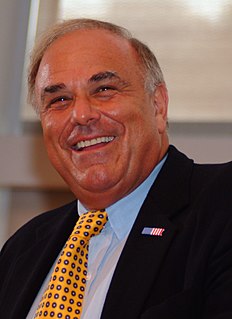A Quote by David F. Swensen
When you look at the results on an after-fee, after-tax basis over reasonably long periods of time, there's almost no chance that you end up beating the index fund.
Related Quotes
Still, I figure we shouldn't' discourage fans of actively managed funds. With all their buying and selling, active investors ensure the market is reasonably efficient. That makes it possible for the rest of us to do the sensible thing, which is to index. Want to join me in this parasitic behavior? To build a well-diversified portfolio, you might stash 70 percent of your stock portfolio into a Wilshire 5000-index fund and the remaining 30 percent in an international-index fund.
Experience conclusively shows that index-fund buyers are likely to obtain results exceeding those of the typical fund manager, whose large advisory fees and substantial portfolio turnover tend to reduce investment yields. Many people will find the guarantee of playing the stock-market game at par every round a very attractive one. The index fund is a sensible, serviceable method for obtaining the market's rate of return with absolutely no effort and minimal expense.
Our standard prescription for the know-nothing investor with a long-term time horizon is a no-load index fund. I think that works better than relying on your stock broker. The people who are telling you to do something else are all being paid by commissions or fees. The result is that while index fund investing is becoming more and more popular, by and large it's not the individual investors that are doing it. It's the institutions.
After 25 quarters of so-called recovery under Obama, it has increased a total of only 14.3 percent. Compare this to earlier periods. After the JFK tax cuts of the early 1960s, the economy grew in total by roughly 40 percent. After the Reagan tax cuts of the 1980s, the economy grew by a total of 34 percent.
An index fund is a fund that simply invests in all of the stocks in a market. So, for example, an index fund might invest in every single stock or almost every single stock in the U.S. market, it might invest in every single stock abroad, or it might invest in all of the bonds that are out there. And you can make a perfectly fine investing portfolio that mixes equal parts of all three of those.
All civilized people see the day beginning at dawn or a little after or a long time after or whatever time their work begins; this they lengthen according to their work, during what they call 'all day long'; and end it when they close their eyes. It is they who say the days are long. On the contrary, the days are round.
The commission of the investment sins listed above is not limited to 'the little guy.' Huge institutional investors, viewed as a group, have long underperformed the unsophisticated index-fund investor who simply sits tight for decades. A major reason has been fees: Many institutions pay substantial sums to consultants who, in turn, recommend high-fee managers. And that is a fool's game.
To remember love after long sleep; to turn again to poetry after a year in the market place, or to youth after resignation to drowsy and stiffening age; to remember what once you thought life could hold, after telling over with muddied and calculating fingers what it has offered; this is music, made after long silence. The soul flexes its wings, and, clumsy as any fledgling, tries the air again






























